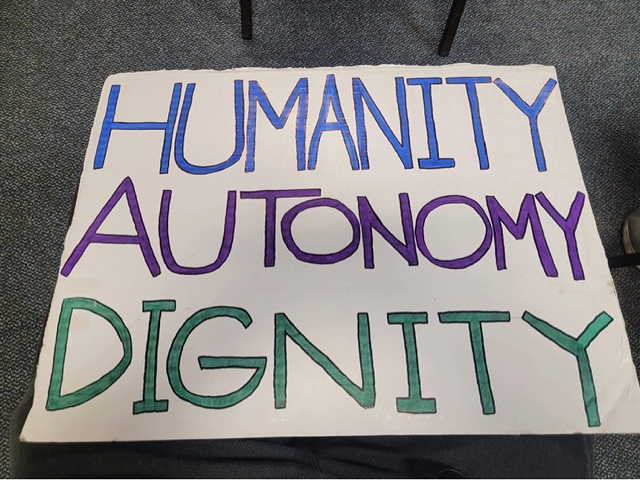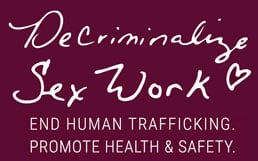Henri Bynx: When consent is impossible | VT Digger
Vt. bill would decriminalize sex work | WCAX 3
Push for bill decriminalizing adult sex work | My Champlain Valley
Final Reading: Advocates look to decriminalize sex work | VT Digger
Lawmakers propose bill to decriminalize prostitution | NBC 5
Council repeals prostitution ordinance
Montpelier, VT Repeals Prostitution Ordinance
August 24, 2022
Montpelier has become the second city in Vermont to repeal its antiquated prostitution ordinance in the past year. Last summer, the Burlington City Council voted to repeal that city’s prostitution ordinance and voters subsequently chose to strike discriminatory and archaic language on sex work from the city charter.
Montpelier’s Police Review Committee recommended that the ordinance be repealed as its stigmatizing and discriminatory language was harmful to both consensual adult sex workers and individuals experiencing exploitation. They suggested that law enforcement should concentrate on combating human trafficking, instead of on prohibiting consensual acts between adults. The committee also noted that most municipalities in Vermont do not have ordinances banning prostitution and that repealing the language would bring Montpelier in line with the rest of the state. Though bills proposing to decriminalize prostitution were introduced during the past two legislative sessions, they did not advance and prostitution remains criminalized at the state level.
The Montpelier City Council held two public hearings on the proposal to repeal the ordinance before unanimously voting in favor of striking it. Both hearings were well attended and individuals in favor of and against repealing the ordinance testified passionately. Members of The Ishtar Collective, Vermont’s only organization run by and for sex workers and survivors of exploitation or trafficking, asked the City Council and their neighbors to recognize them as equals deserving of dignity. They said the immensely dehumanizing language of the ordinance, which did nothing to support the health and wellbeing of residents, perpetuated stigma around sex work, and made them feel unwelcome in the place they call home. Henri Bynx, co-founder of The Ishtar Collective, reminded council members and others in attendance that sex workers are vital and integral members of the community.
Opponents of the repeal were mostly from out of state. Morally opposed to consensual adult sex work, they urged the council to keep or replace the ordinance with even more punitive language. Their attempts at fear mongering — and admonishments that repealing the ordinance would lead to individuals having sex in public and an increase in trafficking, particularly of minors — perpetuated dangerous and misguided tropes around sex work. Dr. Stephany Powell, with the National Center on Sexual Exploitation, said, “You are inviting more crime into your area, and you are also allowing the ability of sex workers to roam freely in your community. … I’m telling you: you don’t want that.” J. Leigh Oshiro-Brantly, a sex worker who co-founded The Ishtar Collective with Bynx, responded to Powell’s derogatory remarks during their statement. “We’re already ‘roaming’ and that … metaphor of roaming like cattle is really part of that dehumanizing language. This is the stigma we’re talking about,” Oshiro-Brantly said. “I’ve heard things (tonight) like ‘demeaning,’ ‘immoral,’ ‘just plain wrong.’ All of these things are moral judgments that no person has a right to make for any other person’s life.”
Just prior to their vote, council members, including Mayor Anne Watson, reminded everyone in attendance that they are committed to ending exploitation and trafficking in all labor sectors. They then voted unanimously to repeal the discriminatory language, affirming that sex workers are deserving of their dignity, humanity, and bodily autonomy.

A sign at the August 24 Montpelier City Council Meeting. Courtesy of The Ishtar Collective.
DSW Newsletter #39 (August 2022)
Operation Cross Country: The FBI’s Annual Anti-Trafficking Performance

Montpelier, VT Repeals Prostitution Ordinance

Possessing Condoms Shouldn’t Be a Crime

DSW Staff Attend Key Conferences Around the World

DSW Newsletter Archive
Old language on sex work is officially gone from the Burlington city charter. Now what? | Burlington Free Press
Burlington’s Vote To Strike Language on Sex Work From City Charter Becomes Law
June 8, 2022
Vermont Governor Phil Scott signed H.746, An act relating to an amendment to the charter of the City of Burlington, striking harmful language from the city’s charter. In March, 69% of Burlington residents voted to support equity, safety, and dignity by opting to remove the discriminatory language prohibiting sex work.
The charter change was then proposed for approval by both chambers of the state legislature. It was passed by a vote of 105 to 33 in the House and on a unanimous voice vote in the Senate. The Governor’s signature on the bill affirms that this type of language perpetuates stigma that can be harmful and does not belong in laws.
Vermonters who engage in consensual adult sex work and individuals who have experienced trafficking urged voters and legislators to make this critical amendment to the city charter. “We have been criminalized and marginalized for too long,” said Henri June Bynx, co-founder of The Ishtar Collective, Vermont’s only organization run by and for sex workers and survivors of exploitation or trafficking. “We are asking our neighbors to recognize us as deserving of dignity and bodily autonomy. This charter change is a vital step towards improving the health and safety of individuals who engage in sex work consensually and those who are trafficked into it,” Bynx continued.
The charter amendment will not decriminalize prostitution in Burlington; state law will continue to criminalize sex work. Significantly, the overwhelming support in favor of the amendment demonstrates that voters and legislators can distinguish between consensual adult sex work and the horrific crime of human trafficking. Understanding this distinction is crucial for communities to combat trafficking into sex work effectively.
The only opposition to the charter change came from individuals and groups who conflate human trafficking and consensual adult sex work. When and where this conflation occurs, as it does in most of the laws governing sex work in the U.S. and around the world, trafficked individuals face enormous barriers to freedom and services because of laws and language that discriminate against and punish sex workers. Trafficking survivors are on average arrested seven times before they are able to escape exploitation because current prostitution and anti-trafficking laws make it impossible for victims and witnesses to report exploitation without risking prosecution themselves. When innocent people are arrested and prosecuted, victims face barriers to services, and exploitation proliferates in the underground market. Removing the archaic language from the City Charter is an important step towards addressing trafficking into sex work in a manner that actually helps victims.

DSW Newsletter #37 (June 2022)
Burlington’s Vote To Strike Language on Sex Work From City Charter Becomes Law

DSW Research and Project Manager Testifies at Legislative Study Commission

A Long Overdue Bill Repealing the “Walking While Trans Ban” Heads to Gov. Newsom’s Desk

DSW Staff Commemorates Pride

